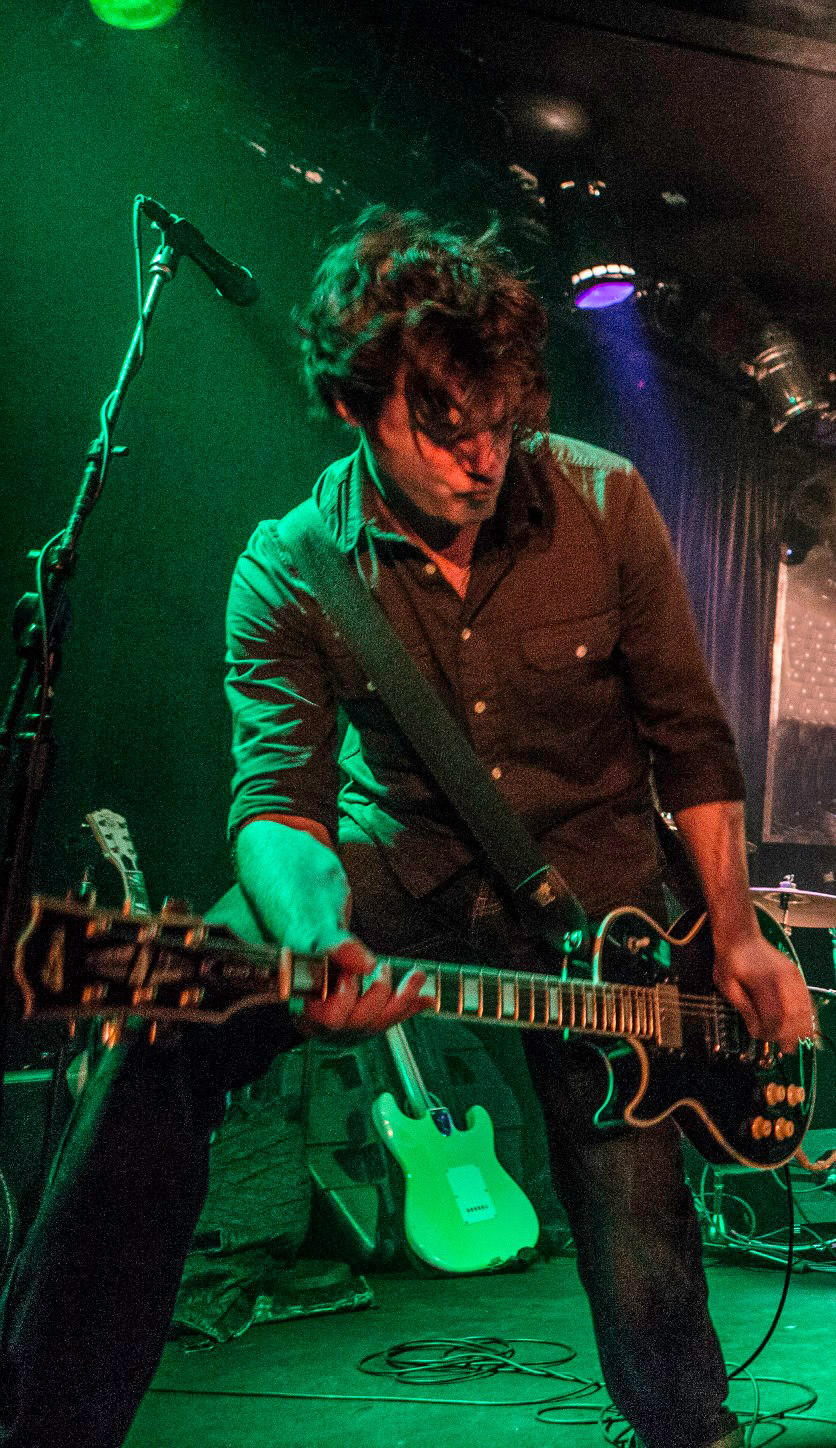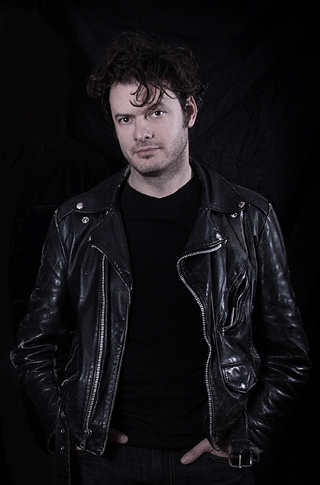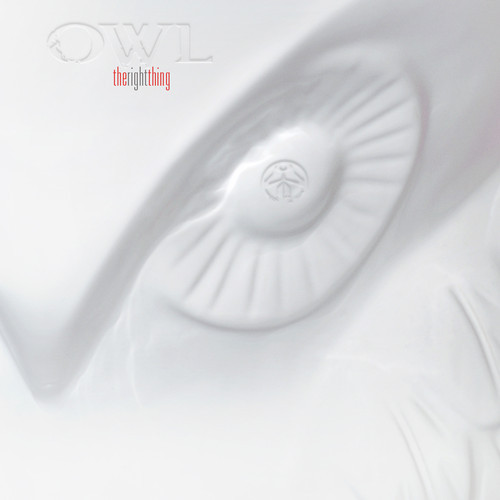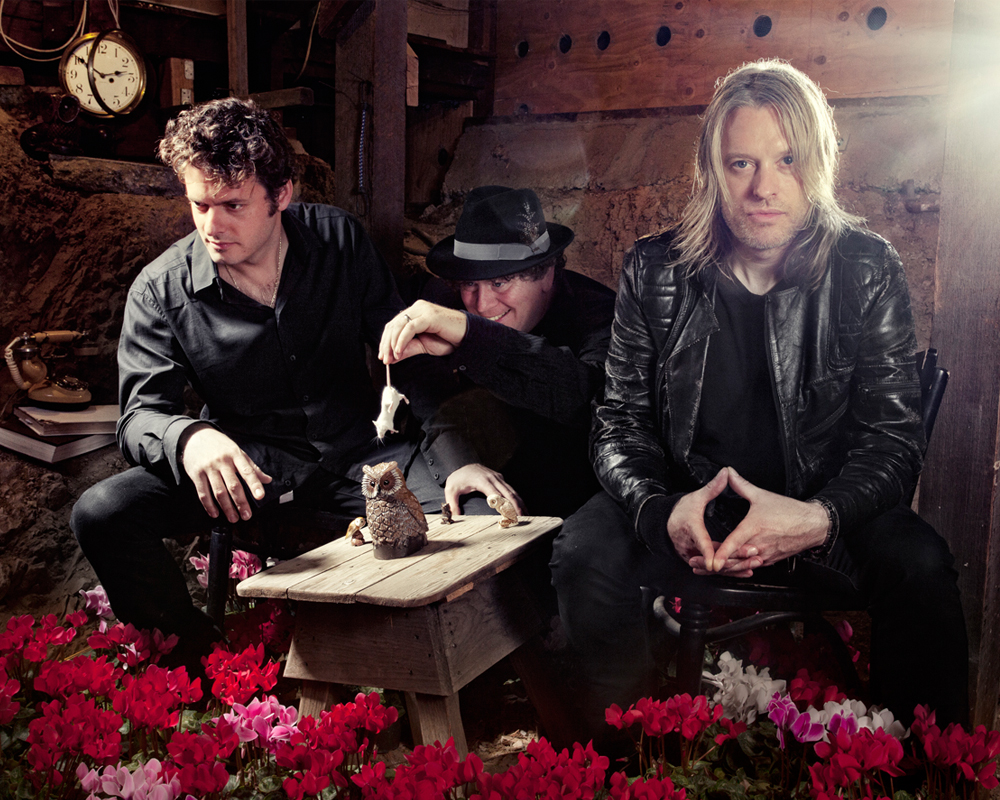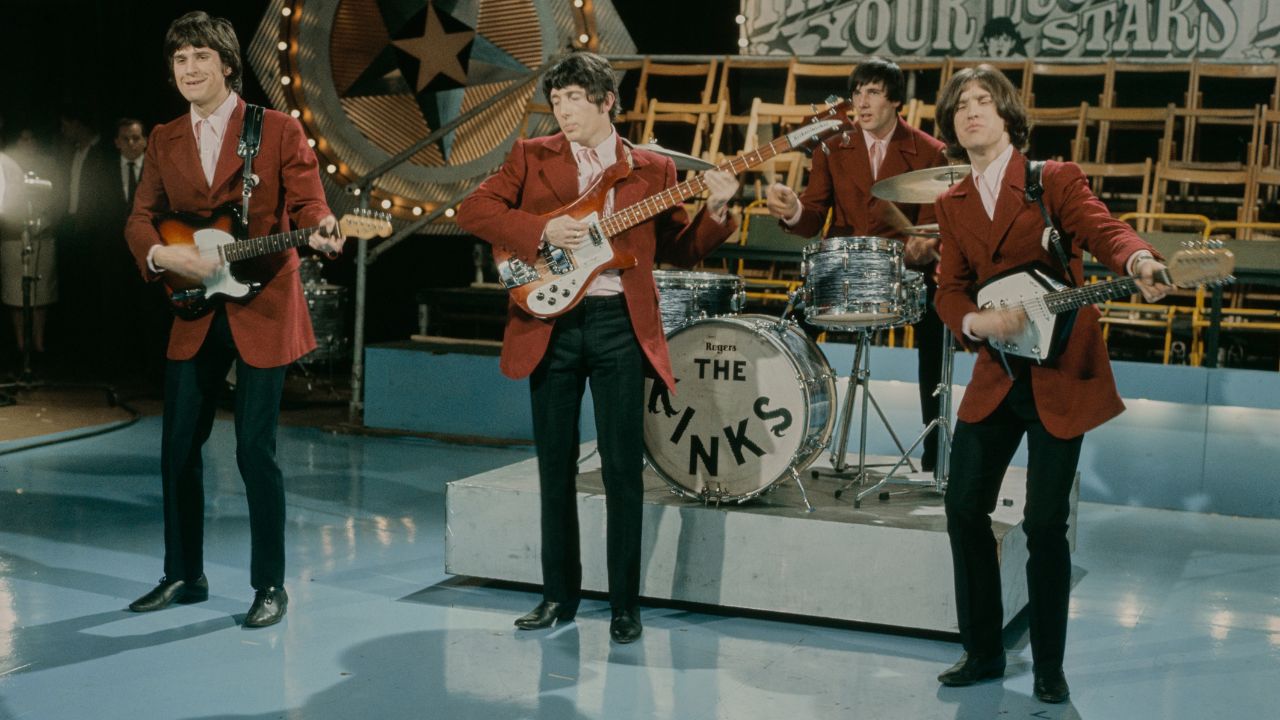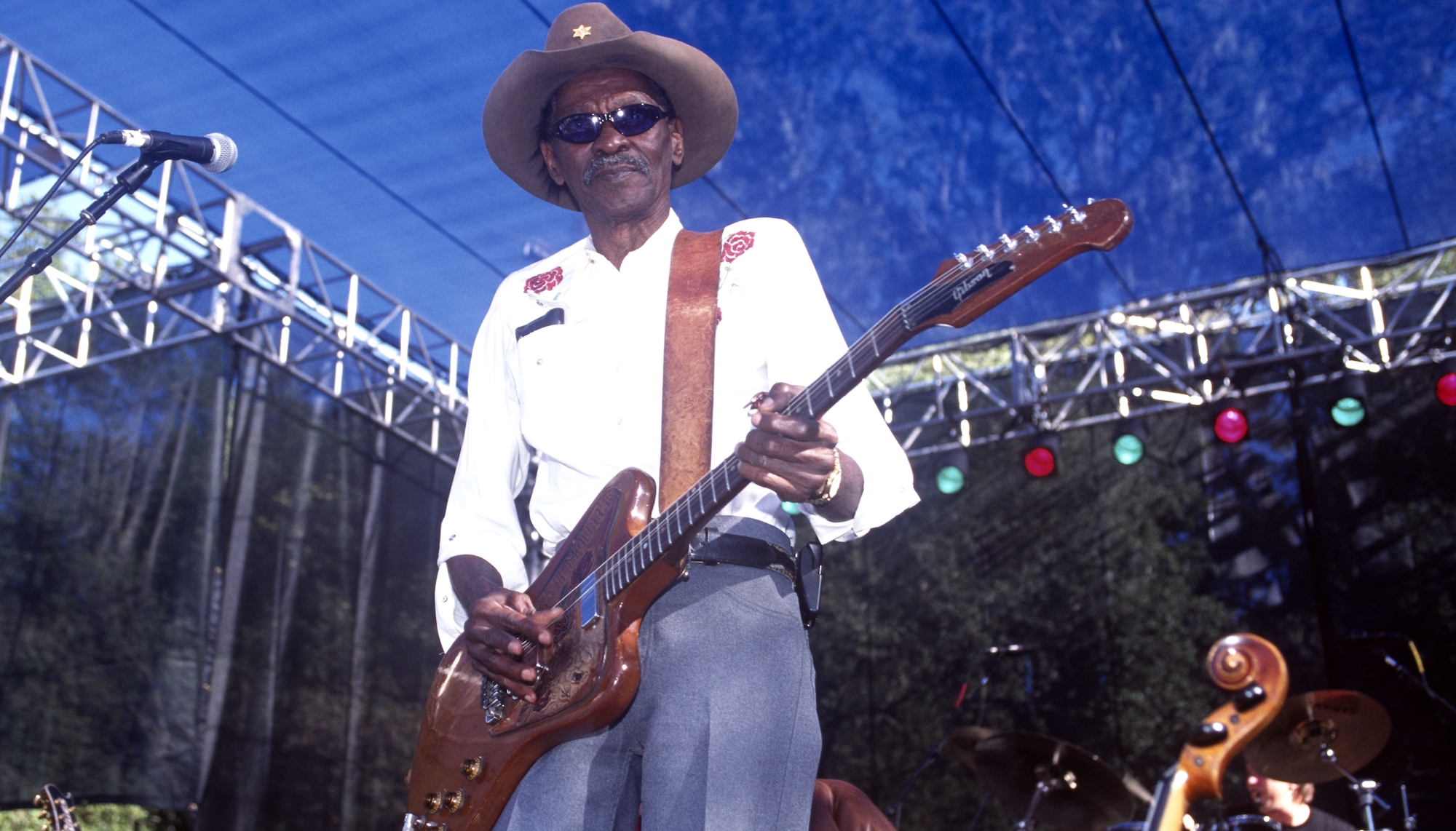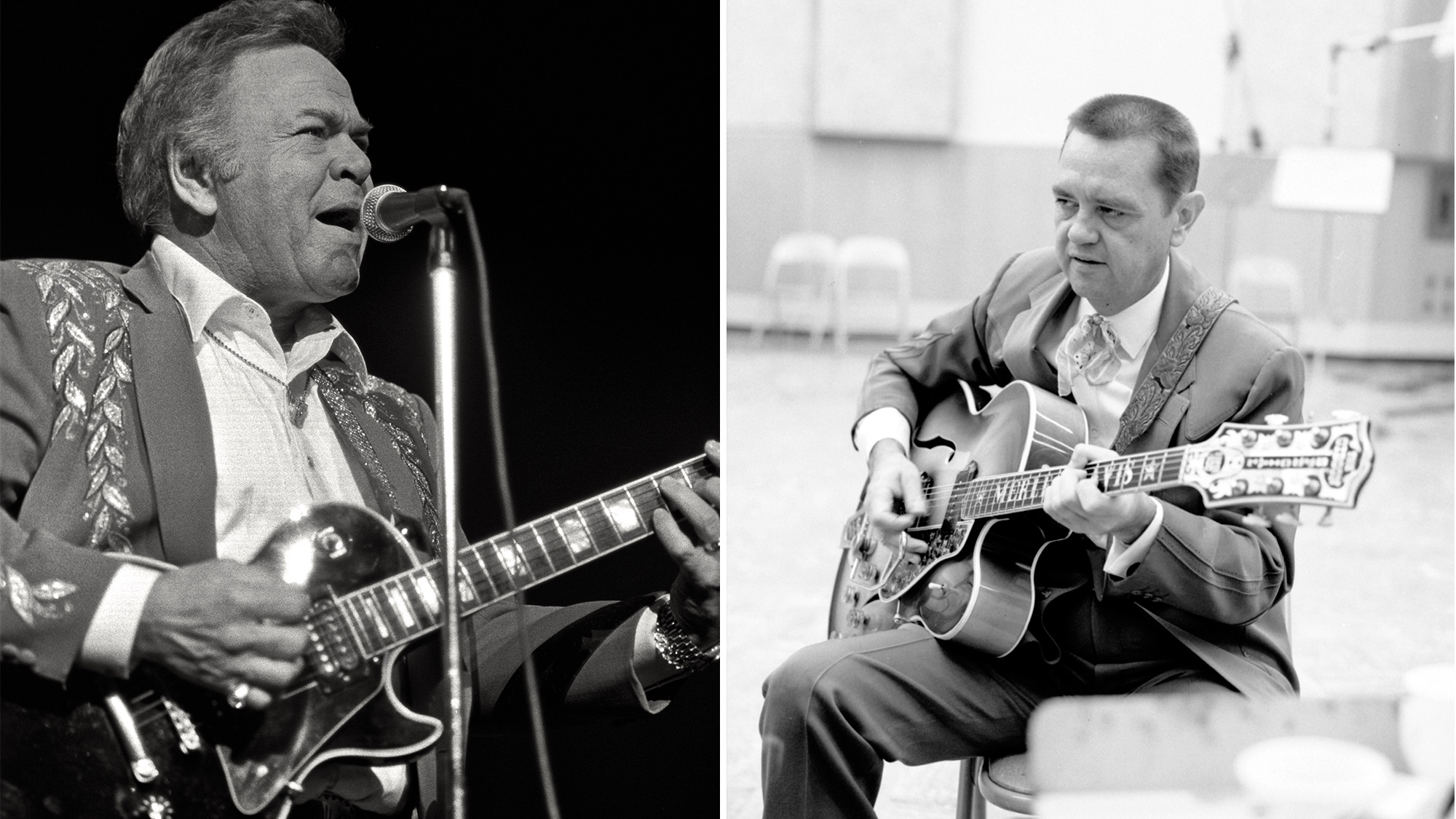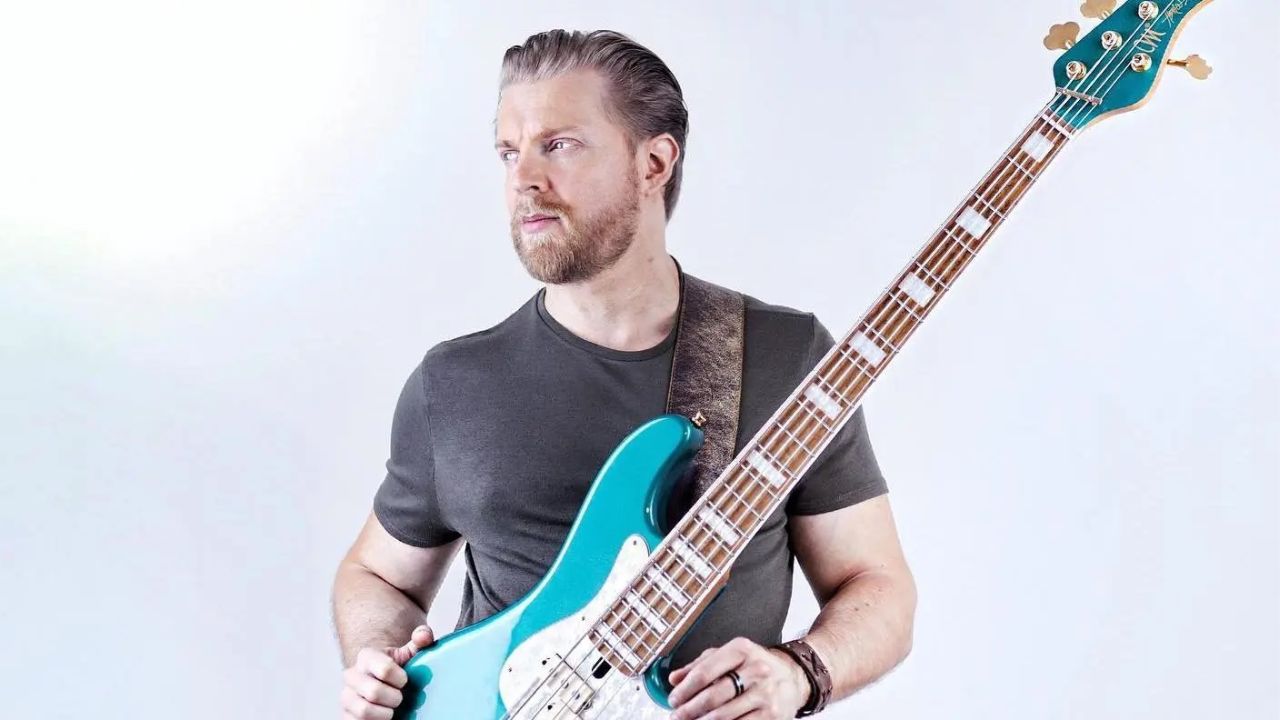Interview: Owl Guitarist Jason Achilles Mezilis Talks New Album, Gear and More
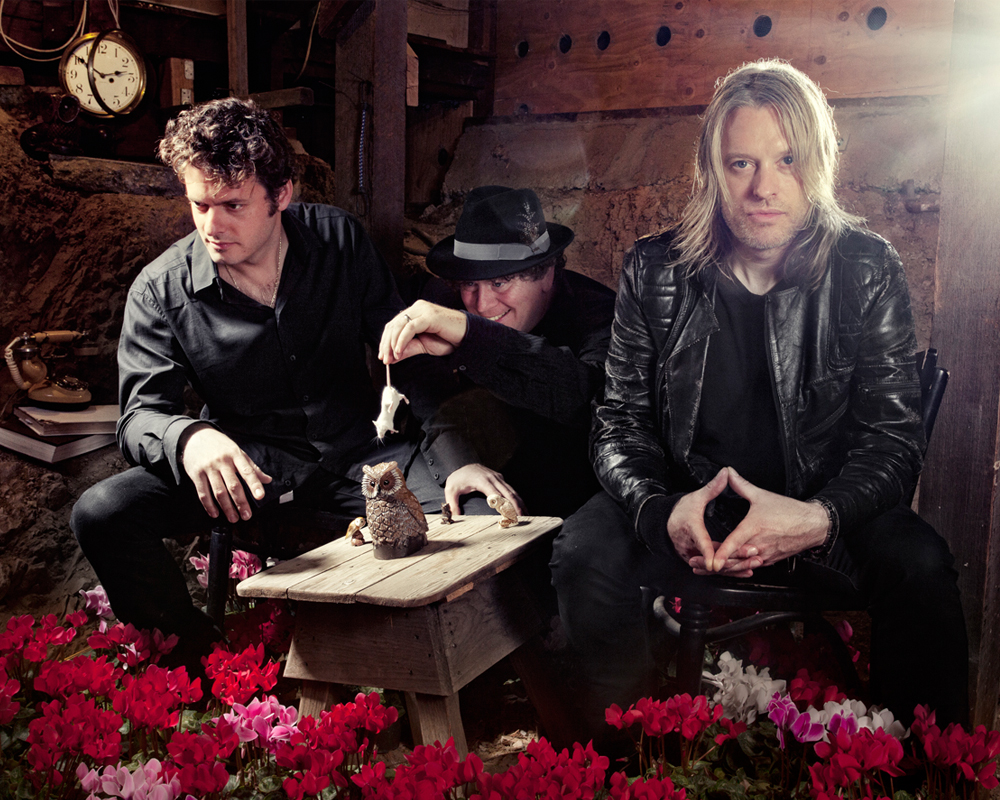
Los Angeles-based hard rock trio Owl, fronted by the Cult bassist Chis Wyse with with Dan Dinsmore on drums and Jason Achilles Mezilis on guitars, released their self-titled debut album in 2009.
Their followup release, The Right Thing, is set to hit the stores April 9 via Overit Records. The album, which has been in the making for a long time, offers a relatively diverse and experimental set of tunes.
I recently chatted with Jason about the album and his unique gear setup. Read the conversation below, and visit the band online at owltheband.net.
GUITAR WORLD: Owl are ready to release their second album. Was there anything different about working on this album as opposed to the first one?
It actually was really different. This album was a much more collaborative band effort. When the first record came through, Chris had been working on the songs for a long time and basically brought us in to refine the tracks and help bring the live energy. This time around, from the creation to the writing, everything was a more combined effort. Chris is the producer of this whole thing, and I think he’s trusted me a lot more, which is awesome because on a personal level as a guitar player I get to be more creative with my parts and more experimental. So it definitely was a different process. It’s cool, and I think we’ve taken in new elements we hadn’t explored the first time around.
In terms of your gear, did you change anything?
My rig is very simple. Even for moments on the record that might sound particularly "effected," I just use a combination of very simple effects applied in a different way. I like to use a delay and a flanger, but then I’m playing with a slide and I’m doing volume changes. I would say half of the sounds and effects I do are just coming from the guitar through different ways of trying to play the instrument.
Get The Pick Newsletter
All the latest guitar news, interviews, lessons, reviews, deals and more, direct to your inbox!
I used more amplifiers on this record, which for me was a new thing. We did a lot of rhythm tracks with a Peavey 5150, the original issue, and that was fucking awesome. Some of the tracks were recorded in LA so I was able to bring my regular rig, and then some were recorded on the East Coast so I was borrowing the rig from friends of Chris. It was cool because it brought me sounds I wouldn’t have been able to create with my rig.
That over-saturated 5150 sound isn't something I'd own or normally put out there, but I was stoked to find it because it was fun. So I guess my sound is still very much the meat-and-potatoes guitar-amp distortion. I try to keep it as rooted as possible.
There’s one thing you might find funny, though. There’s a secret weapon amp I used on about four songs on this record. It’s actually a mini-Marshall Silver Jubilee. They look like full-sized Marshalls, but they’re like 4 feet tall in total for a full stack. My friend gave it to me as a joke, and I pulled it out and plugged it in when we started recording this album. It sounded amazing, so I did a bunch of rhythm tracks using this little amp, running it through a full-sized cabinet. It ended up sounding great [laughs]. I think the Silver Jubilee is the last great Marshall amp, and even the solid-state mini-version of it is pretty fucking awesome.
The new album seems a little more experimental and diverse. Is that because all three of you expressed yourselves, rather than just Chris?
Yeah, I think it’s a combination of everybody having more input, and then also having a much more open concept going into the record in general. Chris had a very specific vision for the first record, I think, and this time around he was more open. We’ve been working on this record for a long time, and initially it was going to be an EP. Then we realized, "Hey, these songs are good! Let’s move forward and do more stuff." So things were created at different times, and I think the combination of a more collaborative band effort and the space of time it was created in allowed for a lot of different styles and influences to come in to play. It was more amorphous.
The Gibson Les Paul is your primary instrument. It's the guitar I’ve seen the most in rock and metal. What is it about the Les Paul that makes it the popular choice in heavy music?
It’s funny, man. When I bought that guitar, I hadn’t joined Owl yet, and I had never played Gibson or Gibson-style guitars before. And for whatever reason, a month before I ended up joining this band, I had this weird feeling of wanting to own a Gibson-style guitar! I had a feeling something was coming up, and so I bought the guitar. It’s actually a mid-'70s Japanese knockoff of a Gibson, and it was made during the period when Gibson was suing companies in Japan because they were making copies of Les Pauls that were too good and selling them for cheap.
If you’re familiar with the Ibanez lawsuit-model Gibsons, my guitar wasn’t made by Ibanez. It was made by another company that was making them at the same time. Gibsons are too heavy for me normally. The weight just fucking kills my shoulder, but this is a semi-hollow body, and because of that it gives it this particular resonance. So it has a Gibson body style, but it echoes a little inside, and it has this very particular sound. I got it for like, basically nothing [laughs]. Chris was laughing at me, and he was like, "Dude, I spent more on my shoes than you did on that fucking guitar! What the hell?"
I had some work done on it by my tech in LA. His name is Greg Coates; he’s over at Future Music in LA. He did a great setup job on it. It just plays awesome. For this band, it needed that meaty sound, and that wasn’t something I had done before. I wanted to change my style to fit Owl better, so that’s why I basically picked a whole new instrument and adapted all these styles playing for this band so that it would be different from the other things I’ve done in the past. I also try to keep my basic mentality of keeping the tone very rooted, and getting the sound from the amp and the guitar. That’s what I’ve always gone for, you know.
Your guitar is a Japanese knockoff of a Gibson, but Gibson caught up with those people in Japan and made them stop the process. What are you going to do if you need another guitar exactly like this one?
I’ll make some calls to Gibson and get that done really nicely [laughs]. We’ll have to introduce the signature Owl semi-hollow bodied Les Paul '70s reissue. I’d be totally fucking down for that.
Are you tied to your gear or could you pretty much play anything?
I’m tied to my guitar. With amplifiers, at the end of the day I don’t give a fuck. As long as I can dial in my sound, I’m fine. The guitar is where it’s at. Especially for me, because I play guitar left-handed, so my options are extremely limited. You go to a guitar shop; there are 500 guitars on the wall. A normal person can go through all 500, but for me I probably have three options and they all suck [laughs]. So that’s basically it. I’m tied to the guitar, and as for the amps give me a good old Marshall and I’m happy.
Other than Owl, what are you up to? Last time I saw you, you had a little home studio of your own and you were working on some solo material, producing other bands. Are you still doing that?
I am! I have a new home studio as well as my downtown LA organic audio recorder, which I think you came to. So I still have the old studio, which is a hybrid digital-analog setup. And I’ve got a new home studio now, which is the same thing but on a smaller scale. We actually did some recordings for the new Owl record in both my studios. John Tempesta did his drums in my studio downtown. It was a complete fucking honor to have that guy in there. It was just amazing. Those were three of the loudest hours of my life [laughs].
At the home studio we did a bunch of the guitar overdubs, and we also did the bagpipes for the song "Rover." We did that in my living room, which was hilarious because I kept wondering what the hell my neighbors are thinking the whole time. But they were pretty down for it, and nobody complained. I did a lot of work on "Rover" in my home studio. I’ve been able to continue producing a lot of bands. That’s basically what I do when I’m not playing with bands, and that’s how I make a living, with production and engineering work. But it was great because I was able to put the new studio to test with this new record. I’ve got to tell you, recording bagpipes is a lot more fun than you might think [laughs].
Playing-wise, do you feel you’re able to fulfill yourself in Owl, or do you feel like doing other stuff?
Owl is a very specific thing for me. I do play in a lot of different projects and sometimes I end up getting roped into playing with bands I record for production work. They’re like, "You know all the songs, so you should play with us for our show next week!" [laughs] But you know, Owl needs a very specific style of playing that I don’t explore anywhere else. Plus the caliber of musicianship in this band is off the scale with Dan and Chris.
So it’s really challenging for me in all the right ways. I think in any project you’re involved in, you want to be challenged. You don’t want to do something unless it’s going to make you better. Of course, you want to make the project better as well. But yeah, Owl for me is challenging and satisfying at the same time.
The live shows are crushing. Whenever we play live, we mostly get the same comment, "I can’t believe all that sound came from just you three guys." People have asked us whether we have keyboards in the background or something like that, just because the sonic layer of the show is so dense. There’s a certain virtuosity that’s necessary for this band, and that is really fun for me to explore. I’ve always been focused on tone first, and flash second.
In a band like this, there are moments where that flash has to be there. So it’s fun to push myself, and to have Chris and Dan pushing me to adapt to that moment. A perfect example is the guitar solo in the song "Send." That solo is awesome, and probably my favorite moment on the record. It came about because Chris was pushing me in the studio to do better. At the end of the day, that’s what I did and it was fucking awesome.
Another thing on the record that stands out is there there's a lot of vocal melody. Chris obviously did most of the vocals, but what was it like for you as a backing vocalist?
Live I have to carry out all the harmonies because there’s only one Chris. On the first record, he did all the harmonies himself, but on this one I forced my way in there [laughs]. So I’m definitely singing more. I love harmonies and I love singing them. Any opportunity to put more harmony onto something is good with me. That means we’ll have to figure out how to sing all that shit live, and that’s going to be interesting [laughs]. But yeah, I have the kind of voice such that I would never be a lead singer but it’s great for harmonies.
Andrew Bansal is a writer who has been running his own website, Metal Assault, since early 2010, and has been prolific in covering the hard rock and heavy metal scene by posting interviews, news, reviews and pictures on his website — with the help of a small group of people. Up till February 2012 he was based in Los Angeles. After that, he had to move to India, but is still carrying on his heavy metal endeavors with the same intensity.
